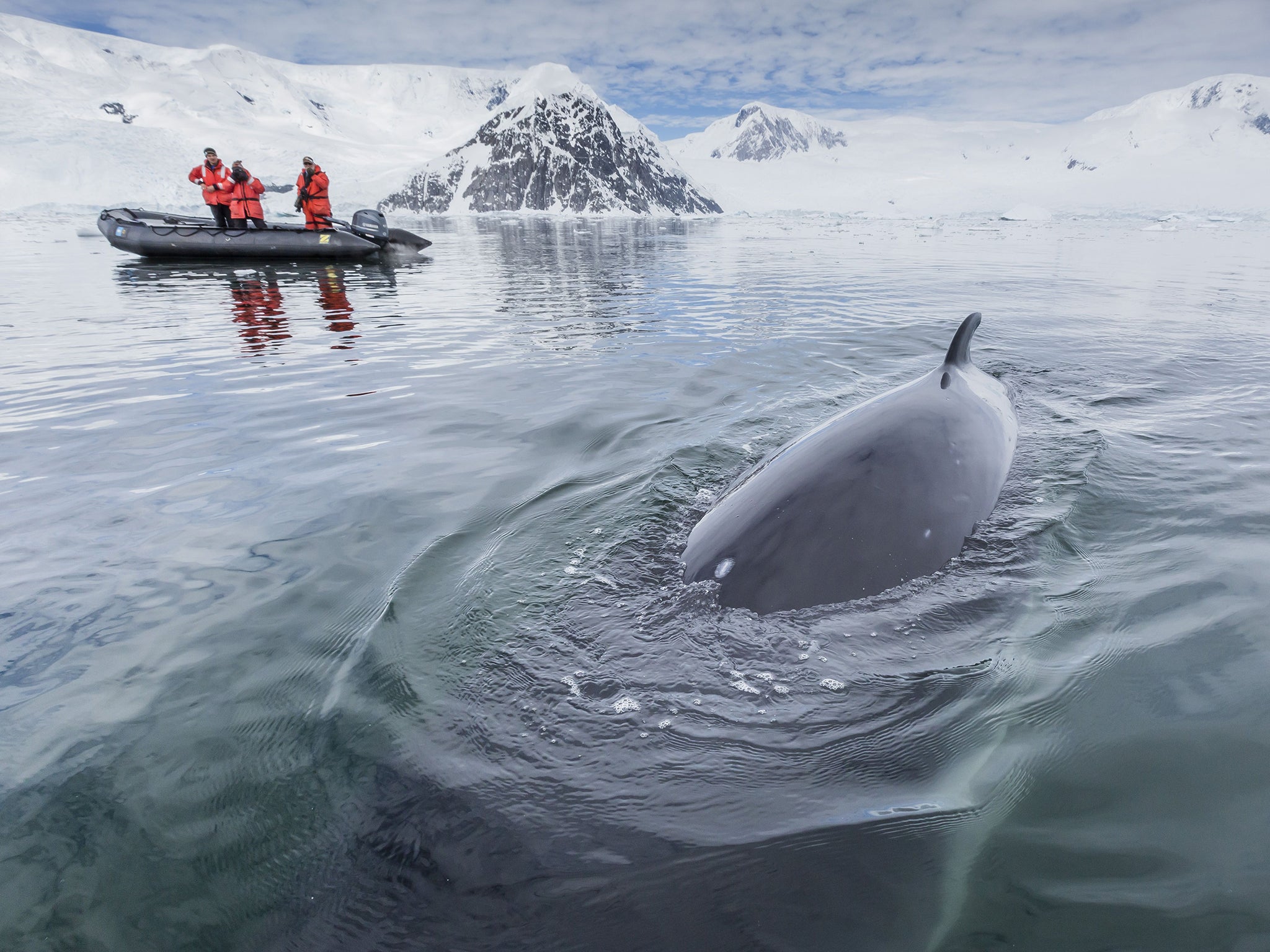Antarctic region to become the world's largest marine protected area
Commercial fishing to be banned in almost 600,000 square miles of ocean after 24 countries reach landmark agreement

Your support helps us to tell the story
From reproductive rights to climate change to Big Tech, The Independent is on the ground when the story is developing. Whether it's investigating the financials of Elon Musk's pro-Trump PAC or producing our latest documentary, 'The A Word', which shines a light on the American women fighting for reproductive rights, we know how important it is to parse out the facts from the messaging.
At such a critical moment in US history, we need reporters on the ground. Your donation allows us to keep sending journalists to speak to both sides of the story.
The Independent is trusted by Americans across the entire political spectrum. And unlike many other quality news outlets, we choose not to lock Americans out of our reporting and analysis with paywalls. We believe quality journalism should be available to everyone, paid for by those who can afford it.
Your support makes all the difference.Part of Antarctica is to become the world’s largest marine protected area, delegates from 24 countries and the European Union have agreed.
600,000 square miles of the Ross Sea – an area more than six times the size of the UK and equivalent to France, Germany and Spain combined - will be protected from commercial fishing for 35 years after an agreement was reached at a meeting of the Commission for the Conservation of Antarctic Marine Living Resources (CCAMR) in Hobart, Australia.
The Ross Sea is one of the most pristine wilderness areas on Earth and home to a large number of marine species, including many that are endangered or protected.
It constitutes just two per cent of the Southern Ocean but is home to a third of the world’s Adelie penguins, more than half the planet's South Pacific Weddell seals and around six per cent of Antarctic minke whales.
The 24 nations that make up the CCAMLR unanimously agreed to the marine protected area (MPA) after years of drawn-out negotiations.
The landmark agreement, which was proposed by the USA and New Zealand and will come into force in December 2017, will ban fishing in 72 per cent of the protected zone. Some fishing will be allowed in other areas but only if it is for scientific research.
Andrew Wright, Executive Secretary of CCAMLR, said: "A number of details regarding the MPA are yet to be finalised but the establishment of the protected zone is in no doubt and we are incredibly proud to have reached this point."
"This decision represents an almost unprecedented level of international co-operation regarding a large marine ecosystem."
Environmental groups welcomed the news but warned that the 35-year agreement must be made permanent and extended to other areas of Antarctica.
John Tanzer of WWF International said: “This is a moment of optimism for the incredible wildlife of Antarctica and is a shining beacon of hope for ocean conservation everywhere.”
“We will take that hope and move to protect more of the ocean off Antarctica and around the world because this has never been more urgent.”
John Hocevar, a marine biologist with Greenpeace, said: "This is a victory for the whales, toothfish and penguins that live in the Ross Sea, as well as for the millions of people who supported this effort."
"We urge the international community to take notice and designate additional, permanent protections in other areas of the Antarctic Ocean and around the world."
Last year the British endurance swimmer Lewis Pugh completed a series of swims in the freezing waters of Antarctica in order to raise awareness of the need for a marine reserve to protect the "pristine" waters of the Ross Sea.
The area, which is one of the last intact marine ecosystems on earth, was described by Mr Pugh as a "garden of Eden".
Join our commenting forum
Join thought-provoking conversations, follow other Independent readers and see their replies
Comments